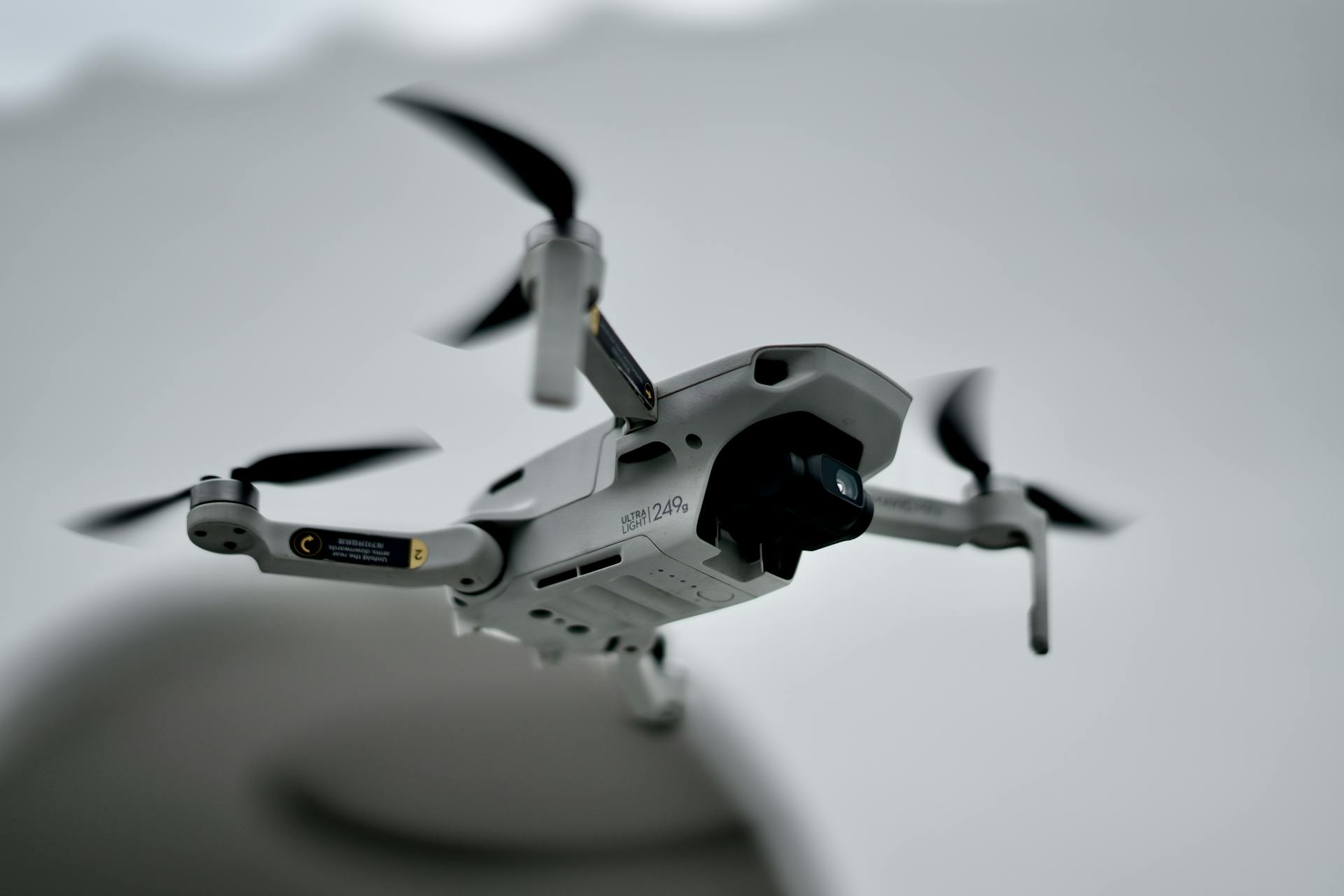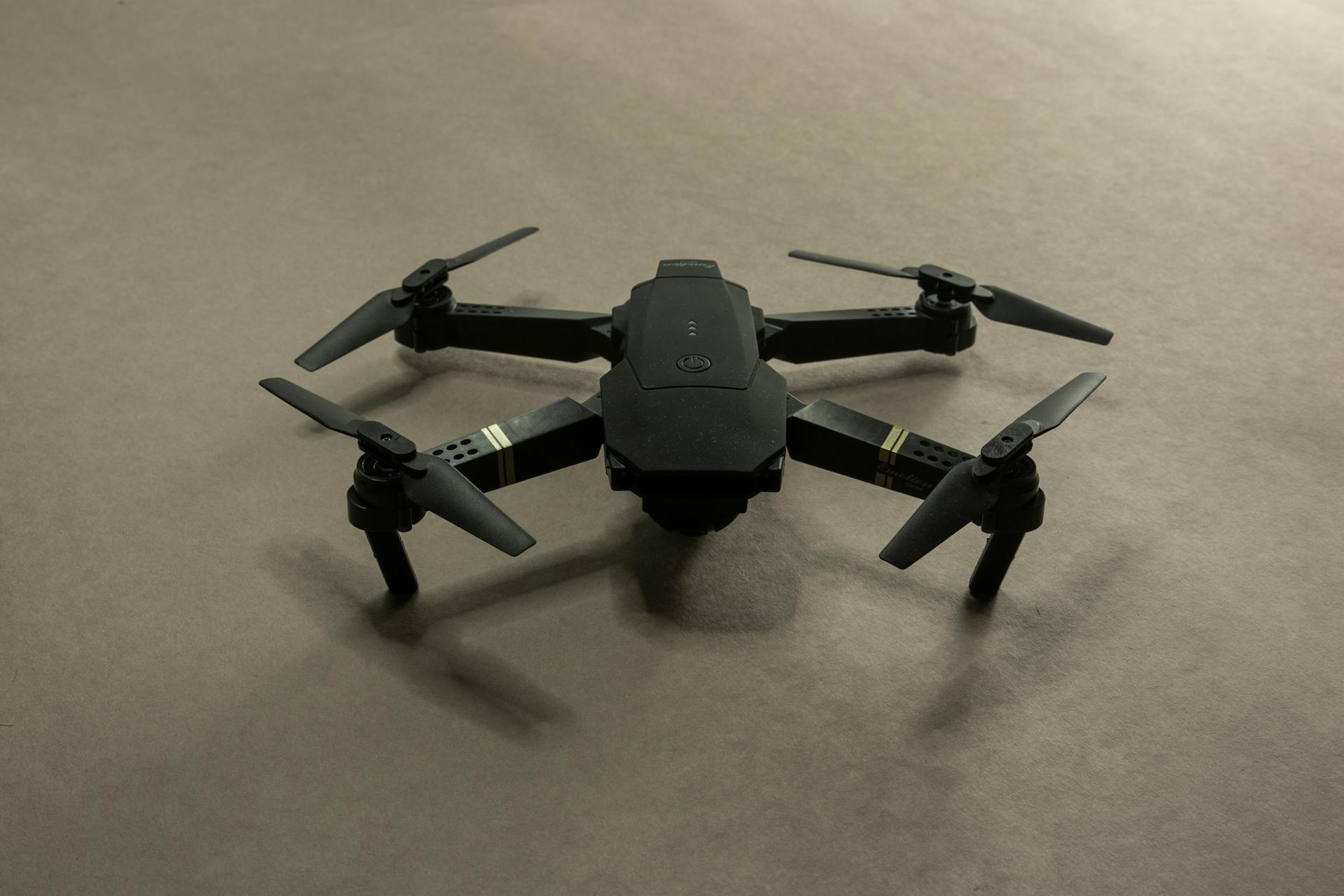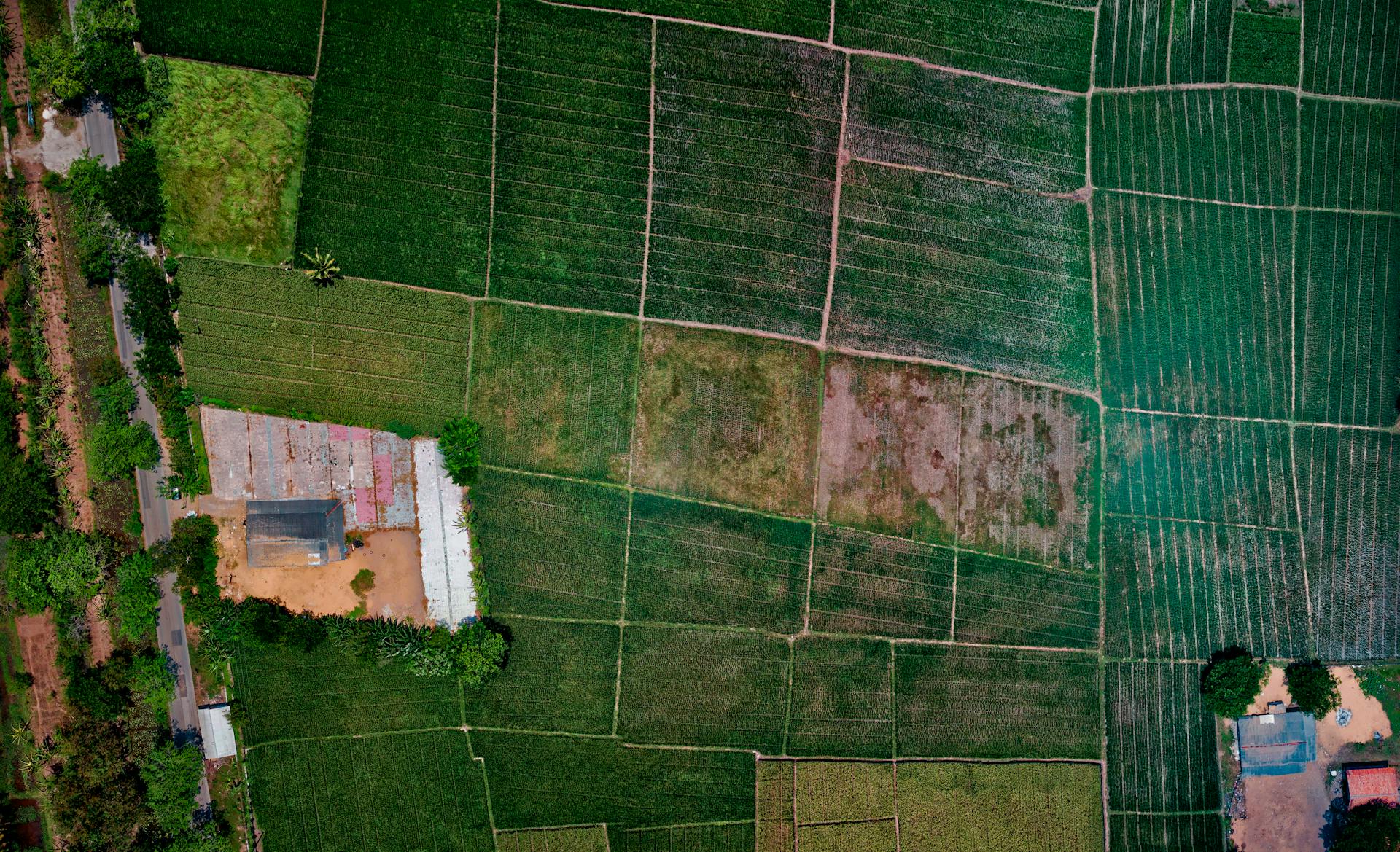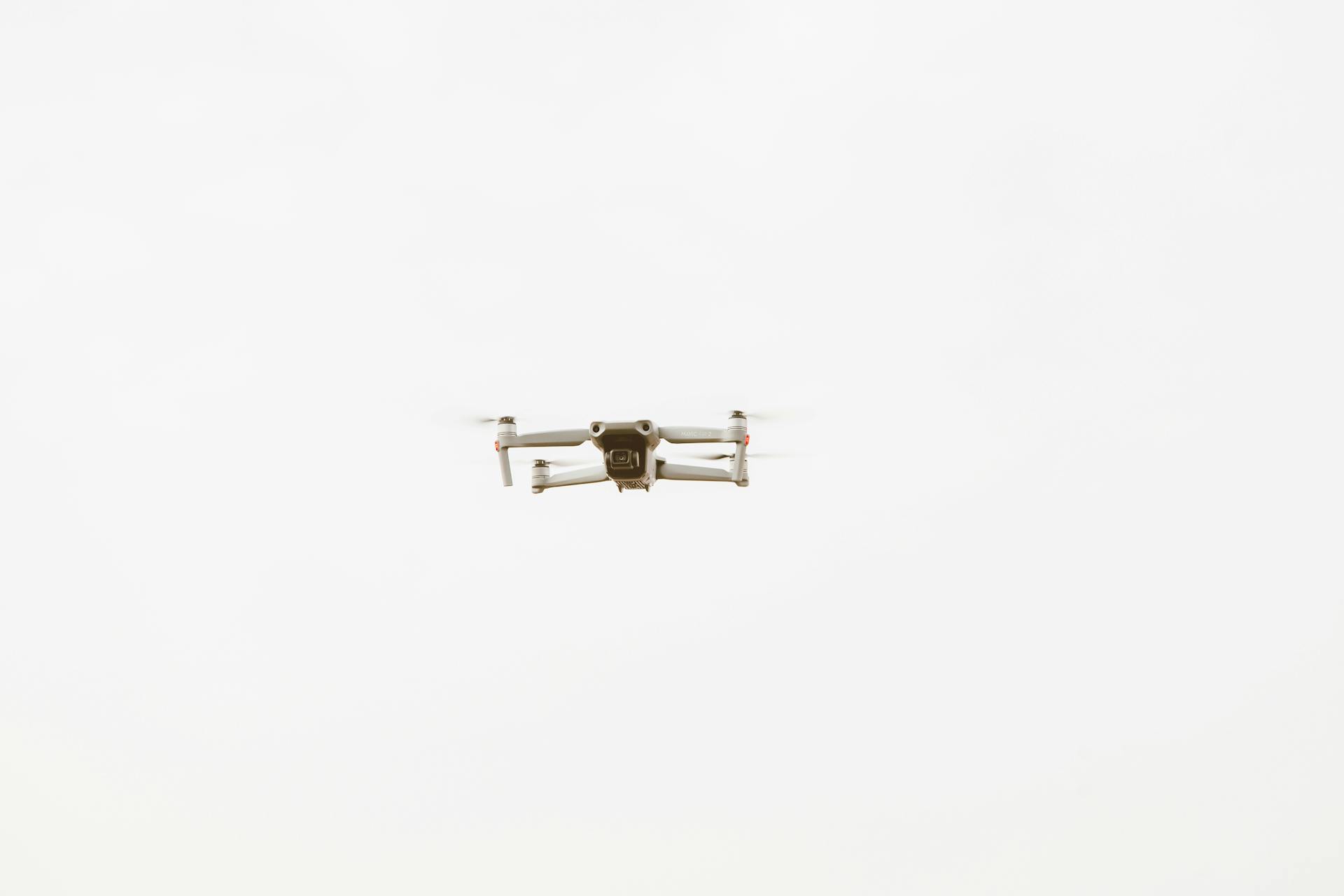
Government surveillance drones are a growing concern, with many people wondering how to protect their rights.
The use of drones for surveillance has increased significantly since 2010, with the US Customs and Border Protection Agency leading the way.
In the US, the FAA has reported over 1 million drone registrations since 2015, with many of these drones being used for surveillance purposes.
To protect your rights, it's essential to be aware of your surroundings and take steps to minimize your exposure to drone surveillance.
Check this out: Us Drone Aircraft
What's the Context?
Government surveillance drones are often deployed in areas where law enforcement or military operations are taking place.
Their primary function is to gather intelligence and monitor situations in real-time.
These drones are equipped with advanced sensors and cameras that can capture high-resolution images and videos.
The use of surveillance drones has been increasing in recent years, with many countries investing in their development and deployment.
Some drones are equipped with facial recognition technology, allowing them to identify individuals in a crowd.
Drones can also be equipped with acoustic sensors that can pick up sounds from a distance, such as gunshots or explosions.
The data collected by surveillance drones is often shared with other agencies or used to inform tactical decisions.
Law enforcement agencies have been using drones to monitor protests and demonstrations, raising concerns about civil liberties.
Government Surveillance Drones
Government surveillance drones are being used by law enforcement agencies to monitor and gather intelligence on various activities, including protests and demonstrations. They are equipped with advanced sensors and cameras that can capture high-quality images and videos.
These drones are often operated from a remote location, allowing officers to stay at a safe distance while still gathering valuable information. Some drones can even be equipped with facial recognition software to identify individuals.
The use of government surveillance drones raises concerns about privacy and civil liberties. For instance, the article mentions that a police department in the US used a drone to monitor a protest without a warrant, sparking controversy.
Law enforcement agencies argue that drones are a valuable tool in maintaining public safety and preventing crimes. They can be used to quickly respond to emergency situations and gather evidence.
Drones are also being used to monitor and track people who have been released from prison, as mentioned in the article. This raises questions about the extent of surveillance and the potential for abuse of power.
Dealing with Drones
If you suspect a drone is being used to spy on you, it's best to contact local law enforcement instead of taking matters into your own hands.
Some states, such as Pennsylvania, have laws specifically barring the use of drones for spying on someone.
Insurance companies could potentially fly over your property to look for trampolines or pit bulls, while local government agencies might use drones to check for property improvements to increase your taxes.
The lack of clear nationwide privacy standards for drones is hindering their use for beneficial purposes, and public fear about drones is one of the main obstacles.
Call Local Law Enforcement
Some states, like Pennsylvania, have laws specifically prohibiting the use of drones for spying on someone. This is a clear indication that authorities take drone-related privacy concerns seriously.
The lack of clear nationwide privacy standards for drones can make it difficult to know what's allowed and what's not. This uncertainty can lead to unnecessary fear and mistrust of drones.
In fact, most drone use is for public benefit, according to Rice, who estimates that 95 percent of drone use is for good. This includes things like searching for lost pets, like in the case he mentions.
Contacting local law enforcement can help ensure that any concerns about drone use are addressed in a fair and lawful manner.
Outdated Safeguards
The safeguards in place for surveillance are outdated, especially when it comes to drones. Manned aircraft have natural limits that restrict their ability to be used as surveillance.
Manned aircraft are expensive and noisy, serving as a notice of potential surveillance. Drones, on the other hand, are small, quiet, and highly manoeuvrable.
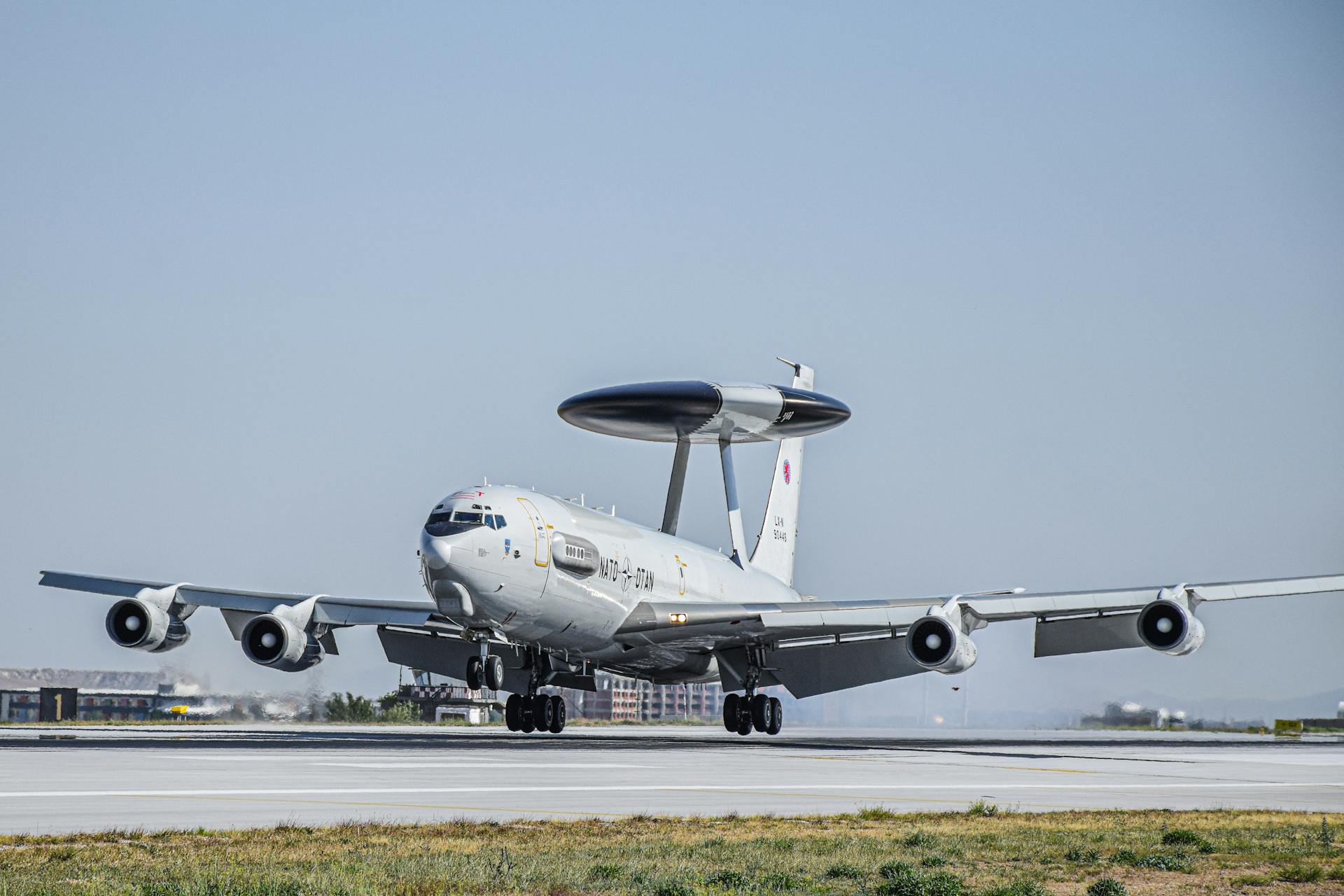
In the 80s, it would have been unimaginable to have a device as small as a drone flying over backyards. Today, drones are becoming increasingly common and are being used by law enforcement agencies.
Over 1,500 law enforcement agencies have purchased or used drones, according to the Electronic Frontier Foundation. This raises concerns about the potential for drones to be used to target poor and marginalised communities.
A Department of Justice report in 2020 found that most authorised drone use by law enforcement was for search and rescue operations, investigating armed suspects, and disaster response.
On a similar theme: Unmanned Drones for Law Enforcement
Shooting Down a Drone
You can't shoot down a drone hovering over your property without facing serious legal consequences.
Federal law protects unmanned aircraft of any size, and you could be charged locally as well.
If you're concerned about drones spying on you, you might be surprised to know that the cameras on most consumer drones are not very effective.
You can't make out details unless you're super close, according to Loretta Alkalay, a former FAA counsel.
People's concerns about drone surveillance are often overblown, Alkalay explains.
You don't have a reasonable expectation of privacy if you're visible from the air, even in your own backyard.
You don't have a reasonable expectation of privacy if you're in front of an open window, either.
The Reality of Surveillance
Surveillance drones are becoming increasingly common, with many countries using them to monitor their borders and citizens.
These drones can be equipped with a range of sensors and cameras, including infrared and night vision.
Government agencies are using drones to gather intelligence and track individuals, often without their knowledge or consent.
In the United States, the Federal Bureau of Investigation (FBI) has used drones to gather evidence in criminal investigations, including the 2012 Boston Marathon bombing.
Drones can be equipped with facial recognition software, allowing them to identify individuals from a distance.
The use of surveillance drones raises significant concerns about privacy and civil liberties.
Featured Images: pexels.com
